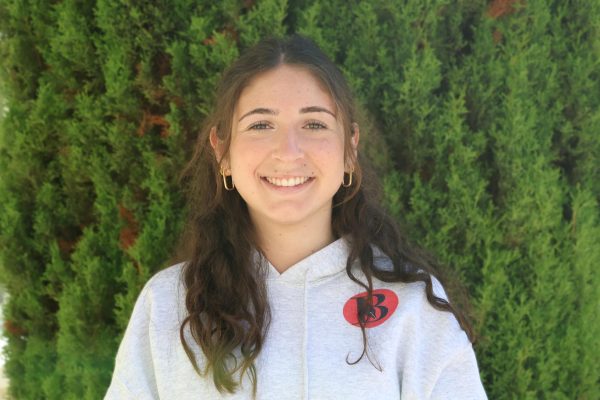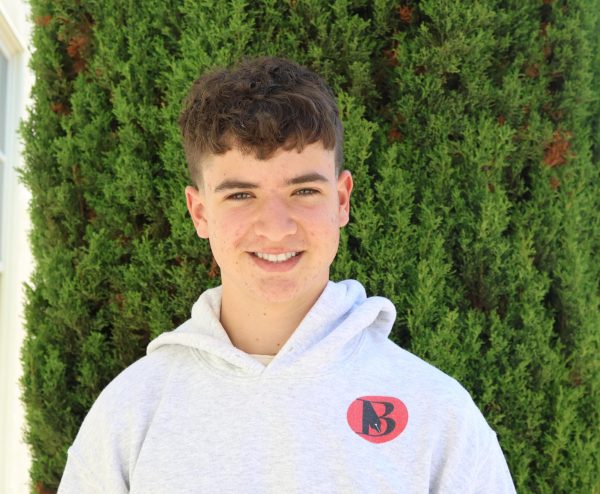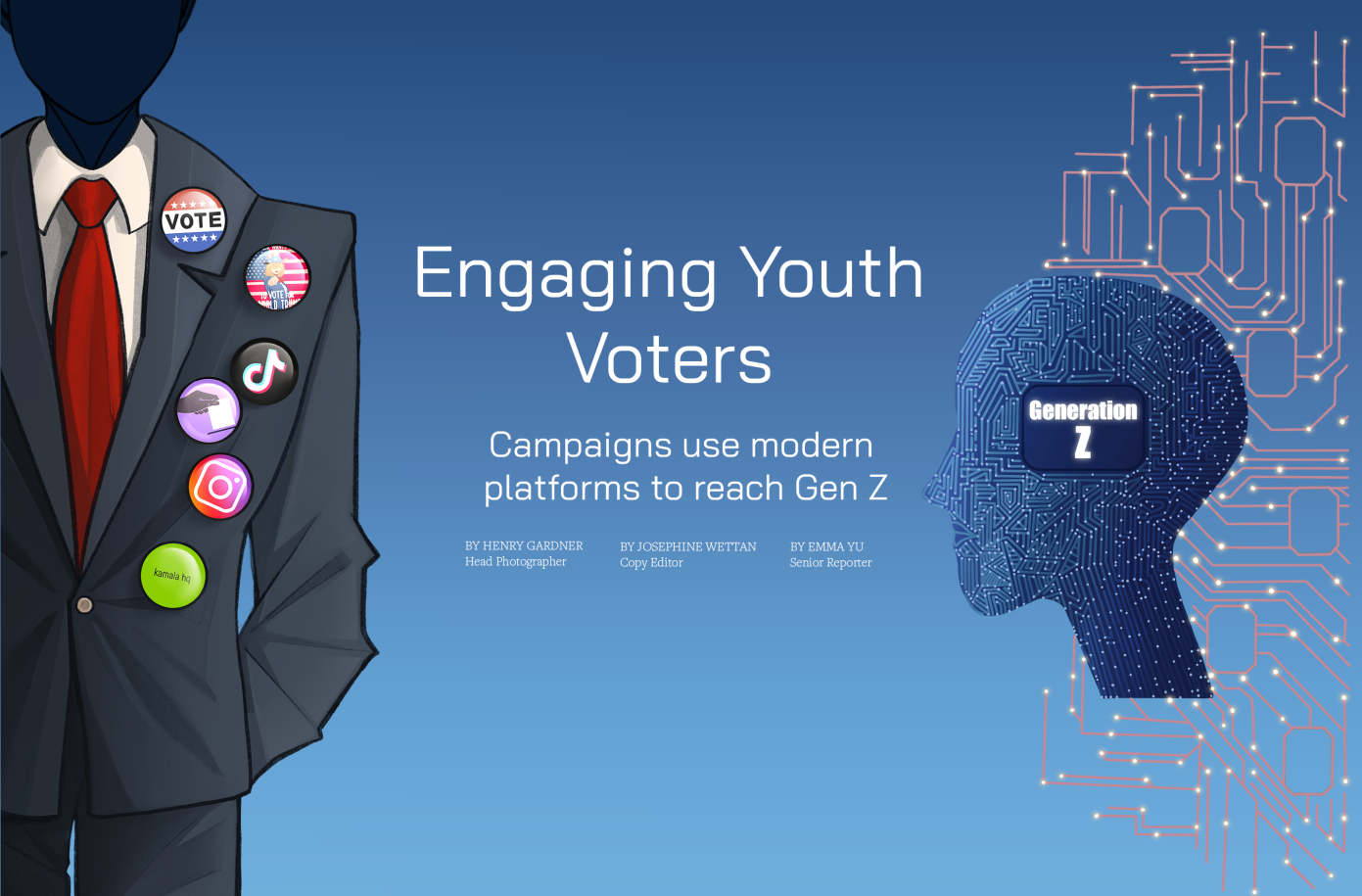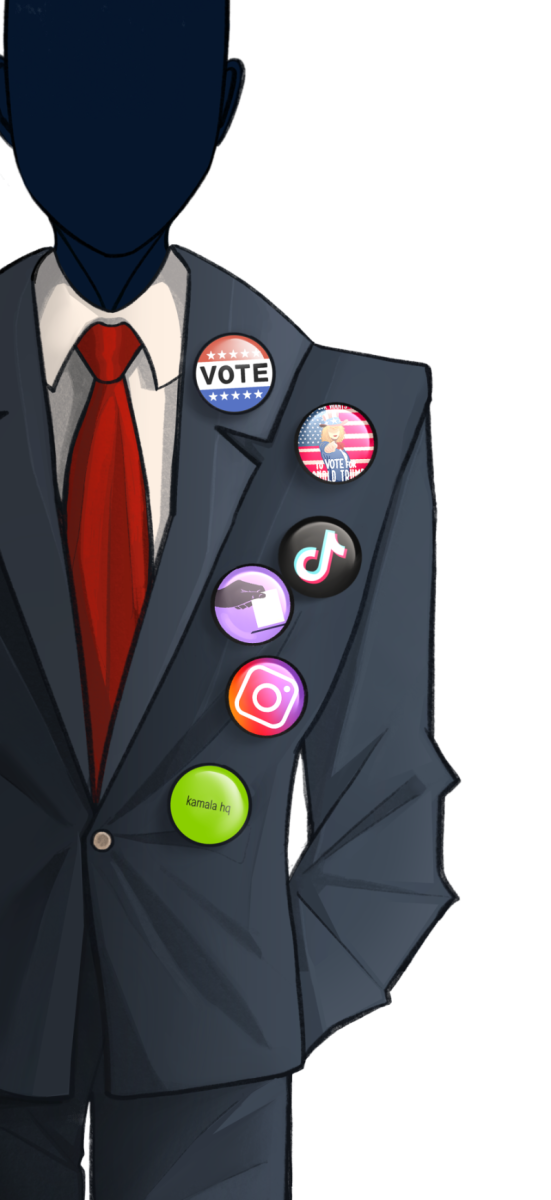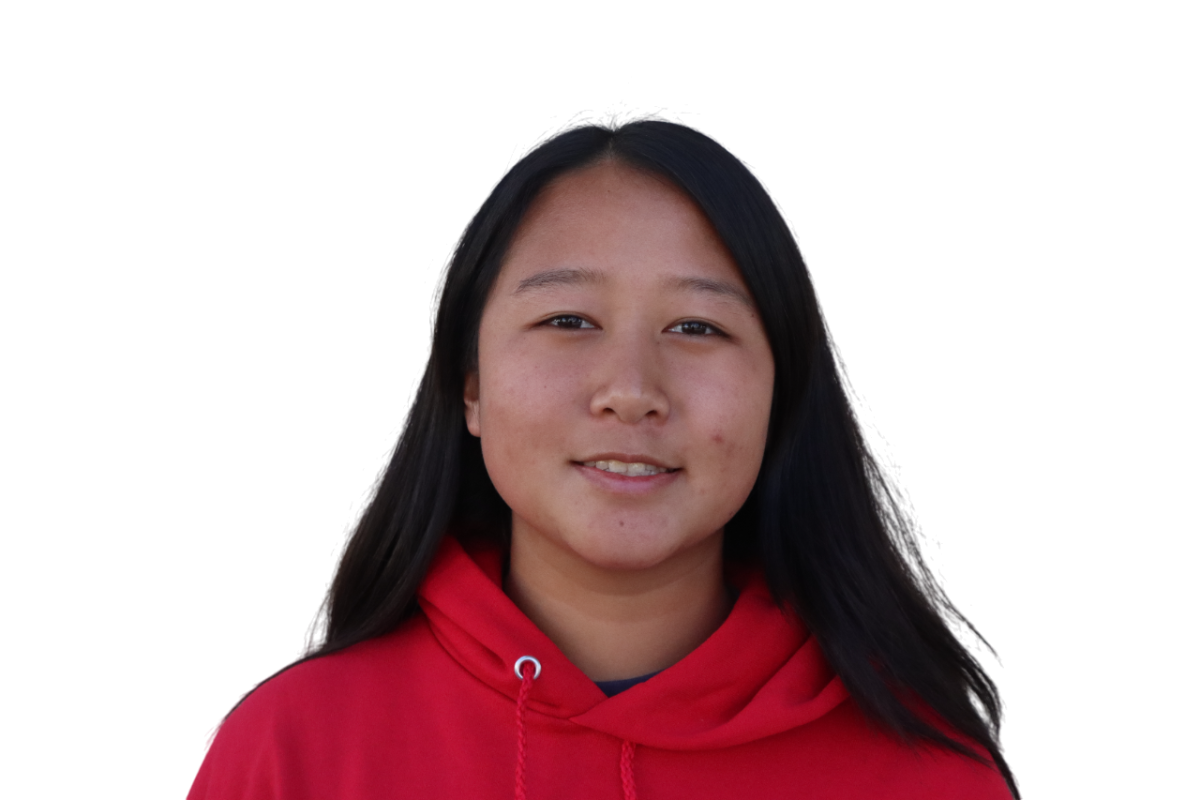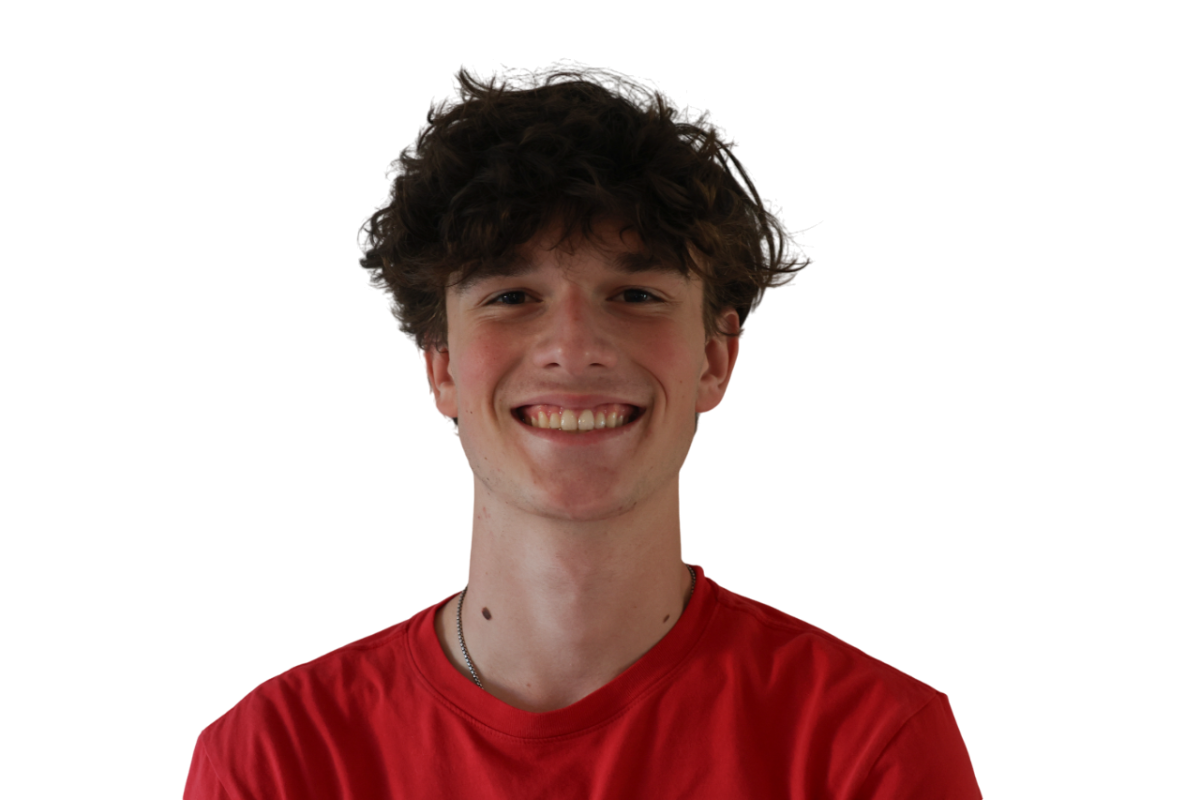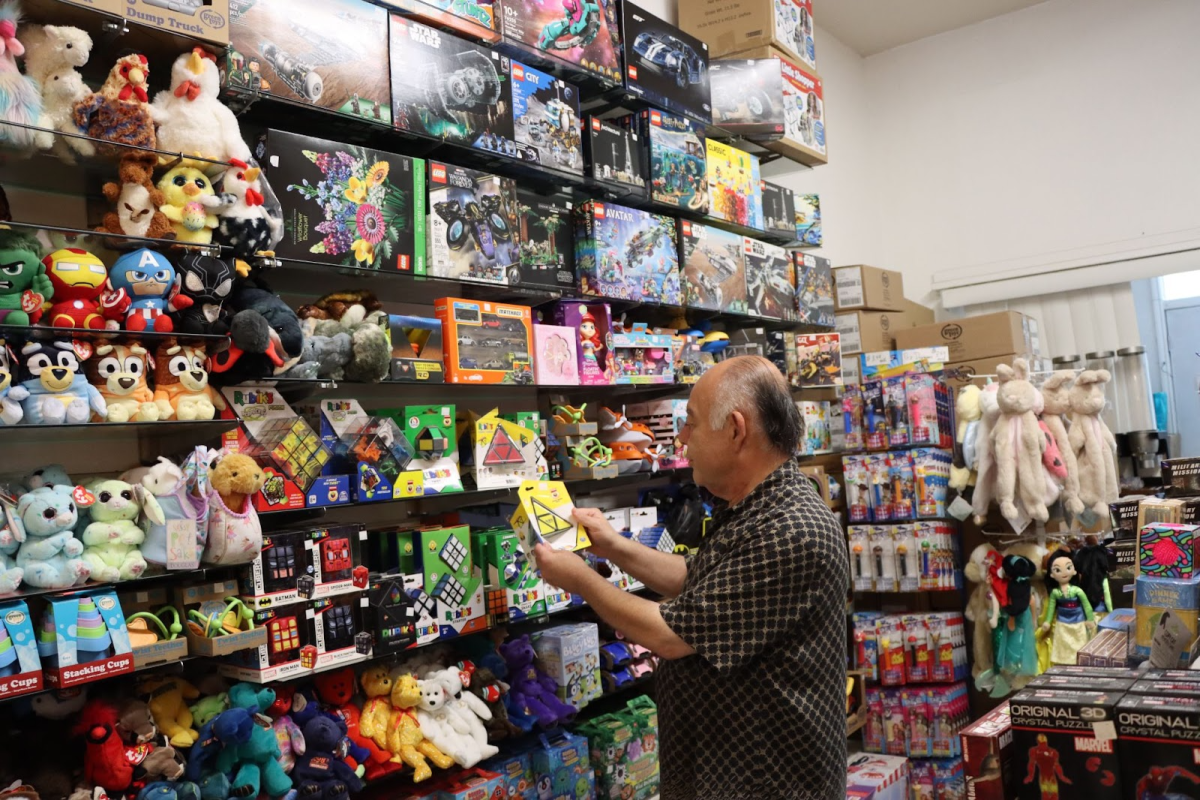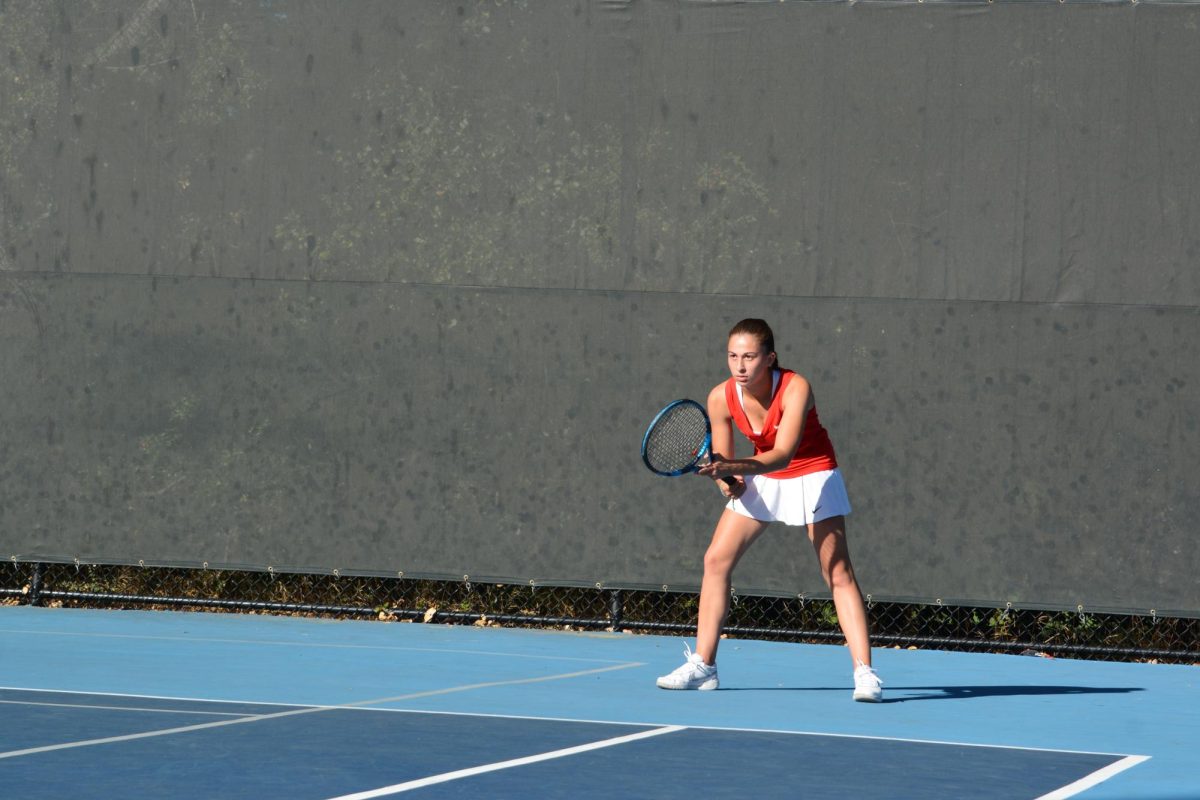Engaging Youth Voters
The 2024 Presidential Election is less than two months away, and it’s become increasingly clear that young voters will be a crucial demographic in this year’s electorate. According to CIRCLE, a research organization based at Tufts University, over 27% of eligible voters aged 18 to 29 turned out for the midterms in 2022, marking the second-highest youth turnout in nearly three decades. Both candidates have utilized social media and celebrity endorsements to attempt to gain the support of young voters, with Kamala’s ‘KamalaHQ’ account, and Trump’s ‘Team Trump’ account both gaining millions of views. With AI also becoming increasingly prevalent in recent years, youth voters have a lot to consider with the election just weeks away.
With 40.8 million members of Gen Z now eligible to vote — including 8.3 million newly eligible since the 2022 midterms — the young generation is poised to make a huge impact on this year’s election. Since 90% of voter-age members of Gen Z use social media, they are likely to be receptive to political candidates with a strong presence on their favorite platforms, making online engagement a key strategy to win the ballot.
This year’s voters face an obstacle that hadn’t impacted politics until now — artificial intelligence (AI). Hundreds of “deepfakes,” or AI-generated content, have filtered into the algorithms of popular social media platforms including TikTok, X, and Instagram — and some even feature politicians.
In recent months, bizarre AI memes ranging from former president Donald Trump rescuing kittens to portraying Vice President Kamala Harris as the leader of a communist regime have become viral. But unlike previously, some of these memes have spilled out of the online world, becoming topics of discussion for candidates and even working their way into campaign narratives.
However, despite concerns on the fallout of viral AI deepfakes on the election, a report by the Center for Media Engagement at the University of Texas found that AI’s efforts to sway voter decisions had no clear influence on the outcomes.
Although high user engagement on AI-generated content hasn’t seen a measurable effect on voter outcomes, it still amplifies false narratives. With the prevalence of more realistic deepfakes, differentiating between the real and fake is becoming more challenging. The increasing potential for AI to spread misinformation accentuates the importance of digital fact-checking.
This prompts the question: Do young, relatively inexperienced voters have what it takes to navigate the deepfakes and pitfalls of the current-age internet? Sophomore Bruce Peters believes that they do — at least for now.
“I think from a very young age, [Gen Z has] just been instilled with skills to kind of help us navigate the Internet,” Peters said. “I remember even in kindergarten we’d [have] classes like be safe on the internet, and I feel like the majority of our generation is safe.”
But adults have valid concerns about students’ media literacy — according to a Stanford study, 82% of teenagers couldn’t tell the difference between real and fake news. Despite these concerns, Advanced Placement (AP) World History and Government teacher Joshua Gnass believes in students’ ability to navigate the online world safely.
“I think we sometimes think kids are ignorant and foolish and they don’t know how to use things,” Gnass said. “Most students understand that you can’t believe everything you’re given on the internet.”
The influence of social media advertising will only grow as younger, more internet-literate generations become eligible voters. Online consumers are likely to shape the political landscape for years to come.
“This is one of the big elections that [Gen Z] can vote in,” Peters said. “A good amount of Gen Z is starting to get to that age, and especially by the next election, we will all mostly be able to vote. As more people start to [meet] the voting age, I think we’re going to see a lot more advertising on social media.”
— Gen Z voters. With the younger generation’s growing political influence, campaigns are evolving their strategies to capture the attention of a more digitally engaged electorate.
Take Taylor Swift, who lent her voice to the political fray, endorsing Vice President and Democratic Nominee Kamala Harris to her 284 million Instagram followers on the night of the presidential debate in Philadelphia on Sept. 10. A year earlier, Swift encouraged her fans to register to vote, directing them to Vote.org. The result was immediate — over 35,000 new voter registrations in a single day, according to Vote.org CEO Andrea Hailey.
Harris’ campaign also leaned into Gen Z internet culture. Most notably, the marketing team embraced the viral “brat” meme — the “hot-mess popstar” aesthetic on TikTok — linked to singer Charli XCX. She used the viral sensation as theming for her social media pages, becoming a significant part of her campaign.
Former President and Republican nominee Donald Trump’s campaign also branched out to popular figures among Gen Z voters. TikTok influencer Bryce Hall expressed support for Trump at a Las Vegas rally in September. The Republican National Convention hosted well-known figures like Amber Rose, a rapper and model, and Kid Rock, who performed his 2000 track “American Bad A–” with lyrics altered to include references to the former President.
Advanced Placement Government and Economics teacher Matthew McDermott recognizes how candidates strategically use celebrities to appeal to specific voter demographics.
“Hulkamania [wrestler Hulk Hogan] at the RNC [Republic National Convention] is tapping into who Trump is hoping supports him, and Kamala, or the Democrats, [are] using the more contemporary celebrities [to] help them,” McDermott said.
As campaigns increasingly turn to celebrities and influencers to connect with Gen Z voters, the broader trend of youth engagement remains a crucial factor in electoral outcomes. McDermott highlights the importance of this connection, noting how youth turnout has historically benefited Democrats.
“Ever since 2008, the narrative has been that when young people vote, Democrats tend to win. So it’s 2024 — 16 years later — but that narrative still applies. If we get this huge turnout that we got in 2008 from younger generations, that seems in part to go well for Democrats,” McDermott said.
Still, it’s hard to quantify how much of an impact celebrity endorsements have on swaying young voters. Senior Shani Roitman, co-president of the Generation Voter Club, believes celebrities and social media influencers won’t change her vote.
“Personally, I wouldn’t let an influencer influence my political beliefs, or who I would vote for. But I think it’s easy for a lot of people in this generation to see an influencer they like pushing [for] something, and then be like, ‘Oh, since this influencer is saying that, then, I believe it,’” Roitman said.
Senior Gigi Sullivan emphasizes the importance of not letting social media solely influence your political decisions.
“I like to look at [politics] when I see something [on social media]. I’m like, ‘Oh, is that actually serious?’ I like to go and look it up and figure out if it’s actually true or not. I look at it for information but you also want to be well informed and not believe everything you see on social media,” Sullivan said.
In middle school, junior Lyra Sheng lived and breathed speech and debate. So, naturally, once she arrived at high school, she sought out Model United Nations at the competitive level.
Now, as the vice president of the club, Sheng believes that Model UN and other political activities provide her with useful tools for a prospective political career, and — even more so — for the rest of her life.
“My involvement in politics-related clubs has strengthened both my media literacy and my understanding of opinions I may not agree with, as well as my empathy for those opinions,” Sheng said. “I believe that allows me to fulfill my role in this democracy more effectively.”
Sheng believes that participating in programs like Model UN equips students with essential tools for success, especially for our younger generation.
“I think the political and media literacy skills that can be gained from [political extracurriculars] are incredibly important to helping us understand how our society functions today,” Sheng said.
While junior Shai Ring campaigned for Charles Hansen — running candidate for San Mateo City Council (District 2) — this summer to gain experience, his political journey began long before that.
As a freshman, Ring joined programs like Model United Nations and Mock Trial to get involved and stay active in the community. Recently, Ring has expanded his political involvement by working on local and state elections, particularly for Hansen.
“I did some volunteer work to help [Hansen] win the city council election,” Ring said.“The other thing I’m doing is working at the election polls this November, which means I’m helping out at the election stations and helping people vote.”
For Ring, political engagement isn’t just a hobby. He sees youth participation as a crucial factor in civic engagement, especially given today’s climate.
“Considering the current political situation, I think it’s important for teenagers to be involved in politics because we are the future of this country,” Ring said. “We all need to have the knowledge to know how to equip our political will to make change throughout the world and our nation.”
Your donation will support the student journalists of Burlingame High School - CA. Your contribution will allow us to purchase equipment and cover our annual website hosting costs.
